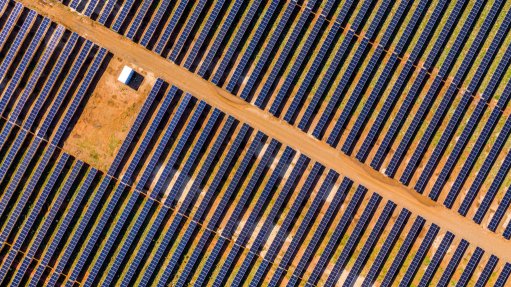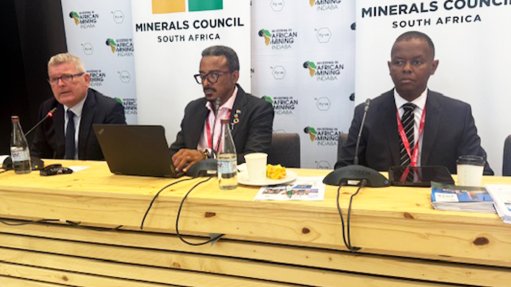Slipping influence
Africa may be the world’s poorest continent – hosting 33 of the 46 economies designated by the United Nations (UN) as the least developed – but it remains the target of courtship by the major powers. The bad news for Americans is that the Chinese and the Russians are doing a much better job of winning the hearts and minds of Africans.
This is not conjecture – it’s a fact confirmed by the latest Gallup survey, which shows that approval ratings for the US, indicative of the country’s soft power on the continent, slipped from 59% in 2022 to 56% in 2023.
Soft power, coined as a concept by American political science professor Joseph Nye in the late 1980s, describes a nation’s nonmilitary tools of power, such as the attractiveness of its cultural, ideological or political model, its connections with foreign elites and populations, diplomacy and international relations.
The US was the only one of the four global powers asked about in the survey that did not see its image improve across Africa in 2023. China’s image improved by six percentage points, to 58%, two points ahead of the US. Germany’s image improved from 51% to 54%, only two points behind the US.
After plummeting in 2022, following its invasion of Ukraine, Russia saw its image improve by a whopping eight points to 42% in 2023. Russia was particularly seen as highly influential in Sahelian countries such as Mali, Burkina Faso and Chad, where approval ratings of 89%, 81% and 76% respectively were recorded.
It’s not difficult to figure out why China is now the most influential power in Africa. It’s now the continent’s biggest trading partner. What’s more, under its Belt and Road Initiative, which spans a significant chunk of Africa, it invests heavily in infrastructure projects.
The reason for the rebound in Russia’s approval in Africa could be that it can meet the continent’s pressing security needs through arms sales that are beyond Washington’s capabilities, according to recent US media reports, which cited unnamed government officials. Moreover, Russia is providing military training in some countries, a case in point being Niger, where Russian instructors have started training the country’s forces in counterterrorism.
But why the scramble – nay, courtship – for Africa?
The reasons are many. For starters, the supply chains for products ranging from cellphones to next-generation batteries all start in Africa, which is endowed with copper, cobalt and other critical minerals. It therefore stands to reason that the major powers would want to have a close relationship with Africa.
Secondly, whereas the global North’s population pyramids are inverting, Africa’s relatively young population is booming, and many agree it could power future economic growth globally.
Then there is the matter of voting at the UN, where African countries constitute the biggest voting bloc of member States, with more than one-quarter of total votes. Thus, no major power that doesn’t have Africa on its side can credibly claim to be the world leader.
The importance of African votes at the UN came to the fore in the last couple of years, when countries from the continent repeatedly displayed ambivalence about lining up behind the US and its allies in condemning Russia’s invasion of Ukraine. Among the leading countries in the nonaligned bloc was our own country, South Africa, which, months after the vote at the UN, went on to conduct military exercises with China and – wait for it! – Russia.
Unlike Donald Trump, his predecessor, US President Joe Biden has been keenly aware of Africa’s increasing importance in world affairs from early on in his current tenure. This much became very clear when, at the US-Africa Leaders’ Summit, in December 2022, he declared: “The US is all in on Africa’s future . . . Together, we want to build a future of opportunity where no one, no one, is left behind.”
It could be that Biden and his administration are not doing enough. How else can one explain the US’s declining approval in Africa? But at least he is a welcome departure from Trump’s seeming disregard, and disdain, for Africa.
Article Enquiry
Email Article
Save Article
Feedback
To advertise email advertising@creamermedia.co.za or click here
Comments
Press Office
Announcements
What's On
Subscribe to improve your user experience...
Option 1 (equivalent of R125 a month):
Receive a weekly copy of Creamer Media's Engineering News & Mining Weekly magazine
(print copy for those in South Africa and e-magazine for those outside of South Africa)
Receive daily email newsletters
Access to full search results
Access archive of magazine back copies
Access to Projects in Progress
Access to ONE Research Report of your choice in PDF format
Option 2 (equivalent of R375 a month):
All benefits from Option 1
PLUS
Access to Creamer Media's Research Channel Africa for ALL Research Reports, in PDF format, on various industrial and mining sectors
including Electricity; Water; Energy Transition; Hydrogen; Roads, Rail and Ports; Coal; Gold; Platinum; Battery Metals; etc.
Already a subscriber?
Forgotten your password?
Receive weekly copy of Creamer Media's Engineering News & Mining Weekly magazine (print copy for those in South Africa and e-magazine for those outside of South Africa)
➕
Recieve daily email newsletters
➕
Access to full search results
➕
Access archive of magazine back copies
➕
Access to Projects in Progress
➕
Access to ONE Research Report of your choice in PDF format
RESEARCH CHANNEL AFRICA
R4500 (equivalent of R375 a month)
SUBSCRIBEAll benefits from Option 1
➕
Access to Creamer Media's Research Channel Africa for ALL Research Reports on various industrial and mining sectors, in PDF format, including on:
Electricity
➕
Water
➕
Energy Transition
➕
Hydrogen
➕
Roads, Rail and Ports
➕
Coal
➕
Gold
➕
Platinum
➕
Battery Metals
➕
etc.
Receive all benefits from Option 1 or Option 2 delivered to numerous people at your company
➕
Multiple User names and Passwords for simultaneous log-ins
➕
Intranet integration access to all in your organisation


















